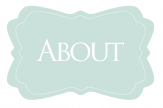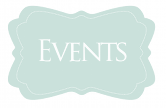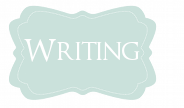For the longest time, I would have told you my truest essence, the most indisputable fact about me - and all other humans for that matter - is my sin: my dirty hands, my wayward heart, my wandering ways. I would have said that the essence of humanity is imperfection and brokenness, these core features tying us all together in one miserable, exhausted lump of mess. That we are hopeless and helpless, without divine intervention.
If an impoverished Hindu man slumped over his rickshaw in India had anything undeniably in common with me, it was his tainted heart, his “sin nature”. If the acne-spocked girl across the bus from me or the overweight woman serving my meal at Applebee’s bore any resemblance to one another, it was because of this tainted lineage, forever stringing humanity together in what seemed to be an inescapable plummet toward sin, toward death. For years, even as I loved, even as I served, even as I traveled around the world and back, this truth resided just below the surface, a foundation for my beliefs and actions: We are all sin. We are all flawed. We are all tainted at our core.
At some point, I finally started questioning those beliefs. Not the reality that we are, in fact, clearly flawed. Clearly imperfect. Clearly capable of unspeakable atrocities. No, such things could not be disputed without sticking our heads in the sand or burying our hearts in a deep freezer. Evil exists. In me. But what if evil and sin and the ability to harm are not my truest nature? What if brokenness is not the core essence of my being?
 Slowly, I started to wonder what it would mean to embrace myself - and the world - as inherently good. At first the thought of “inherent goodness” struck me as blasphemy, as overly-spiritual, modern relativism scheming to merely improve my self-confidence. Then, I began to wonder if there was a place for inherent goodness within Christianity? I wondered if such a belief would lead to the sort of licentious living I had always been warned to avoid - to fear as the inevitable outcome from such escapades with self-love - or if, instead, it would lead to wholeness and peace and courage. If, looking within and loving myself, honoring myself, esteeming myself as good, would wreak any of the havoc so many early spiritual teachers had warned me of.
Slowly, I started to wonder what it would mean to embrace myself - and the world - as inherently good. At first the thought of “inherent goodness” struck me as blasphemy, as overly-spiritual, modern relativism scheming to merely improve my self-confidence. Then, I began to wonder if there was a place for inherent goodness within Christianity? I wondered if such a belief would lead to the sort of licentious living I had always been warned to avoid - to fear as the inevitable outcome from such escapades with self-love - or if, instead, it would lead to wholeness and peace and courage. If, looking within and loving myself, honoring myself, esteeming myself as good, would wreak any of the havoc so many early spiritual teachers had warned me of.
Or had they? Had that been their warning? Had I somehow self-filtered all those teachings and created my own belief system as a sort of protection against the scarier task of loving myself? Had I misheard, all those years; missed something core? And, either way, what would it mean for me to embrace this belief, now at thirty-one, that my essence is not sin?
Serendipitously, like so many times before, books began to fall into my lap. Like raindrops of light, beaming truth and hope into my wary questioning, I read from mainstream Christian author, Dr. David Brenner, "Love is our identity and our calling, for we are children of Love.” I read from an Eastern monk named Maximos, "All of us as human beings are icons of God.” I read from Glennon Doyle Melton, an addict in recovery, a mom writing to her son, "When you were born, I put a piece of myself in you. Like an indestructible, brilliant diamond, I placed a part of me inside of you. That part of you - the very essence of you, in fact - is me; it is Love, it is perfect, and it is untouchable. No one can take it and you can’t give it away. It is the deepest, truest part of you, that will someday return to me. You are Love.”
Then I start to remember Scriptures, verses I had not read in years, like this from Psalm 8, “Yet you made man only a little lower than the angels (some versions say “only a little lower than God") and crowned them with glory and honor.” And then this staple from the Creation story in Genesis flashes through my mind, “God created man in his own image, in the image of God he created him; male and female he created them.” And I wonder, is this the space? Is this the place where inherent goodness has existed all along?
I am not a theologian, although certainly there was a season when I thought I had an awful lot of life figured out. I am not a Bible teacher or a philosopher or a spiritualist of any repute. No, truly, I’m not even close to any of those things, nor do I have any aim at becoming so.
What I do own, though, is my life - my stories and my experiences and my soul. I have friends, too, and a wonderful family. And when I look within or when I observe my kids, when I talk to a close friend or meet a new mom at the park, I do not see sin. I do not see inherent flaws and impossible pathways to death. I do not see dirty hands and tainted souls.
I see beauty.
I see courage.
I see sacrifice and concern.
I see hope and creativity.
I see a deep, undeniable essence of love.
I see inherent goodness.
































No comments:
Post a Comment